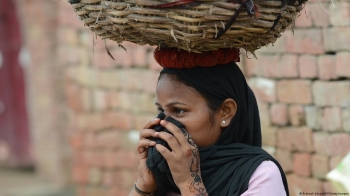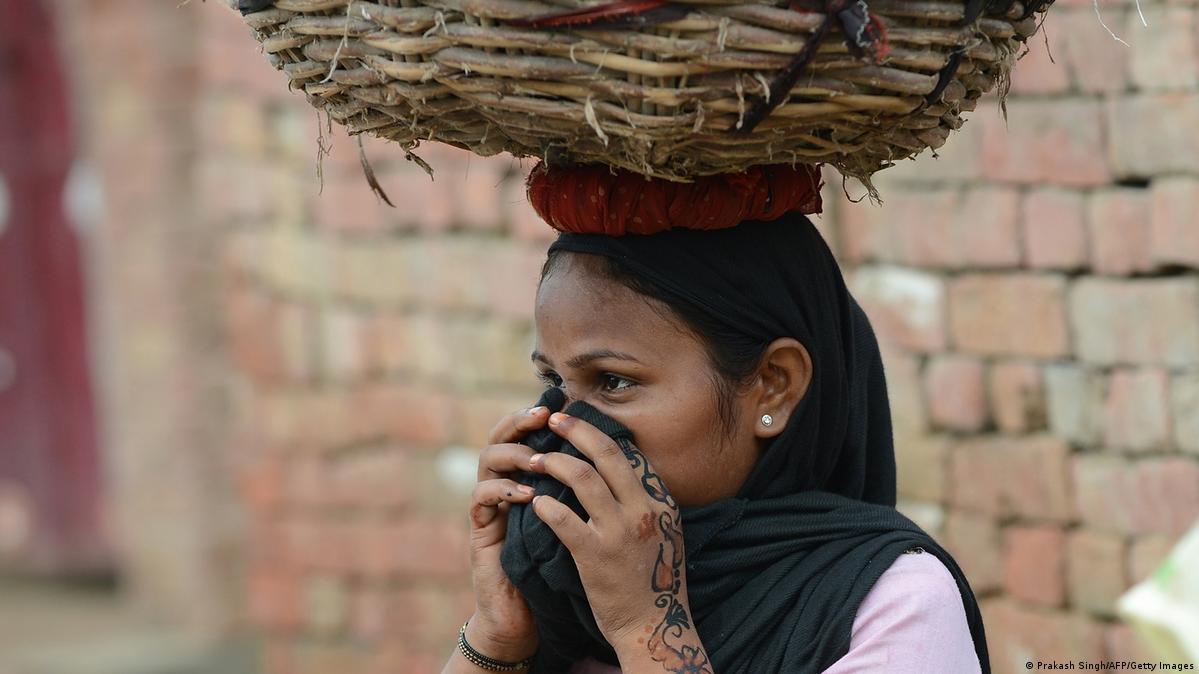
.png) Aarti
Aarti

On 4 February this year, Bengaluru police booked five people after two men aged 25 and 29, employed to clean a sewage treatment plant at a suburban apartment were found dead under mysterious circumstances. On 6 February, Coimbatore police booked a contractor for allegedly engaging an elderly person to clean the septic tank of a public toilet situated inside a bus stand with bare hands. A 47-year-old man who was sent along with two more workers to clean the septic tank of a Chennai suburban residential complex comprising of some 270 flats collapsed immediately after coming out of it.
The above incidents clearly highlight how brazenly some unscrupulous elements seem to browbeat an existing Central law that bans manual scavenging.
Initially, with the intent to liberate the manual scavengers from the inhuman task of carrying night soil, the Employment of manual scavengers and construction of Dry Latrine (Prohibition) Act was enacted in 1993. It prohibited the construction and or maintenance of dry latrines and employment of manual scavengers. However, the Census 2011 portrayed that there were still 26 lakh insanitary latrines in the country which indicated nightsoil either got deposited into open drains or was removed manually. To eradicate this dehumanizing practice as also gainfully rehabilitate human scavengers, the Government enacted the Prohibition of Employment as Manual Scavengers and their Rehabilitation Act, 2013 (MS Act, 2013).
In 1994, the Union Government established the National Commission for Safai Karamcharis (NCSK) as a statutory body by an Act of Parliament. NCSK had an extendable tenure till 2004. Thereafter, NCSK has been acting as a non-statutory body of the Ministry of Social Justice and Empowerment and the current extension is up to 1 March 2025. NCSK’s mandate is to monitor the implementation of the MS Act, 2013; enquire into complaints regarding contravention thereof and convey its findings along with recommendation requiring further action. Besides advising the Central and the State Governments for effective implementation of the provisions of the Act, it is empowered to take suo motu notice of any matter relating to non-implementation of the Act.
Coming to sewer and septic tanks, as per the census 2011, only about a third of our urban households are connected to the sewer system. Some 38.2 per cent of houses as per Census 2011 use toilets connected to septic tanks. Reports indicate that often these tanks that are buried underground in populated areas are not constructed as per required standards. Consequently, the treatment of sewage is partial and there are illegal sewage connections to storm water drains which result in pollution of waterbodies. Imagine the challenging task before municipalities to separate the nearly 1.75 million tonnes of excreta generated daily from water.
Septic tanks seem to have been misused with impunity. For instance, in Punjab, a man allegedly murdered his uncle after he suspected the latter of having an illicit affair with his mother and threw the dead body in the septic tank at his house. Not long ago in Delhi, a 34-year-old woman allegedly strangled her inebriated husband and dumped it in the septic tank at their house. The man used to abuse her physically and verbally after drinking. To avoid the stench from spreading, she hired some labourers and got the lid of the septic tank cemented. The Hindustan Times reported how septic tanks and large pits constructed for toilets in some places under the Swachh Bharat Abhiyan had turned into drinking water storage tanks. Crafty bootleggers devised an unusual ploy to smuggle liquor worth nearly Rs 5 lakh in a septic tank sludge container near the Union territory of Daman. But they were caught and liquor was seized.
According to statistics compiled by NCSK between 1993 and 2022, sewer deaths has taken a toll of 1054 people. What’s the way out? The Supreme Court in “Safai Karamchari Andolan and Ors vs Union of India and Ors (2014)” observed that if the practice of manual scavenging has to be brought to a close and also to prevent future generations from the inhuman practice of manual scavenging, rehabilitation of manual scavengers will need to include sewer deaths. Entering sewer lines without safety gear should be made a crime even in emergency situations. For each such death, compensation of Rs 10 lakhs should be given to the family of the deceased. (Tamil Nadu has increased this to Rs 15 Lakh). Identify the families of all persons who have died in sewerage work (manholes, septic tanks) since 1993 and award compensation of Rs 10 lakhs for each such death to the family members depending on them.
Well, in 2013, the Government had also brought about the Prohibition of Employment as Manual Scavengers and their Rehabilitation Rules, 2013 which is quite comprehensive. More recently, Tamil Nadu put in force the Tamil Nadu Prohibition of Employment as Manual Scavengers and their Rehabilitation Rules, 2022. Among others, it lists the safety precautions to be taken before cleaning sewer/septic tanks. Some 15 cleaning devices like sewer line cleaning bucketing machine, jetting machine, manual rods, shovels, spades, drainage cleaning machines and steel scrapers with handles, hoses and washing instruments, etc. are to be made available to the worker. Besides, comfortable bodysuits shall be made available to the worker who has to enter the sewers/ septic tanks for their cleaning.
The employer shall provide full body suits to workers entering machine holes of depth more than five feet and alternatively, partial fishing wader body suits to those entering machine holes of depth less than five feet. The employer or the contractor shall also ensure several safety precautions before a person is engaged in the cleaning of a sewer or a septic tank, namely: There shall be a minimum of three employees present all the time, one of whom shall be a supervisor. The atmosphere within the confined space shall be tested for oxygen deficiency and toxic and combustible gases including but not limited to poisonous gases like Hydrogen Sulphide, Carbon Monoxide, Methane and gasoline vapours, through detection tests including the following: (i) lowering a detector lamp into the machine hole; (ii) inserting wet lead acetate paper which changes colour in the presence of hazardous gases; (iii) detection of gases through gas detector masks. Regular medical check-up of sewage workers has been made mandatory which includes the examination of respiratory organs, skin injuries and other occupational diseases and injuries for their treatment to ensure that sewage workers afflicted with such diseases or injuries do not enter sewers for cleaning.
To rehabilitate identified manual scavengers, Tamil Nadu would provide one-time cash assistance of Rs.40,000 to one from each family, immediately after identification. The members of the scavenging community shall be given preference in the award of contracts for maintaining the public toilets, urinals and bathrooms in railways stations, bus stands, markets and so on. They shall be engaged as waste collectors through outsourcing for door-to-door collection with segregation of solid waste in local bodies. Adequate financial assistance under various Government schemes/bank loans is to be provided to any member of the scavenging community, who intend to launch his own business / economic activity.
The children of the manual scavenger shall be entitled to scholarship as per relevant scheme of Central Government or the State Government or the local authorities, as the case may be. The listed persons through the survey shall be allotted a residential plot and financial assistance for house construction, or a ready built house with financial assistance, subject to eligibility and willingness of the manual scavengers as per the provisions of the relevant scheme. At least one member of their family shall be given subject to eligibility and willingness, training in livelihood skill and shall be paid a monthly stipend during such period. At least one adult member of their family shall be given, subject to eligibility and willingness, subsidy and concessional loan for taking up an alternative occupation on sustainable basis as per the provisions of the relevant scheme.
With an intent to put an end to manual scavenging, in this year’s Union Budget speech, Finance Minister Nirmala Sitharaman had announced that all cities and towns will be enabled for 100 per cent mechanical desludging of septic tanks and sewers to transition from manhole to machine hole mode. Nearly Rs 100 crore allocation is to be provided in this year’s Budget for the newly christened NAMASTE (National Action Plan for Mechanised Sanitation Ecosystem) scheme.
A survey had found that many manual scavengers suffered from skin ailments which can be directly traced to the dangerous and unhygienic nature of work without safety gear. TB, Malaria, Fever and stomach pain also seemed to be rampant. Hopefully the NAMASTE scheme will provide a full stop to manual scavenging. At a macro level, there is an imperative need for proper management, planning and effective monitoring.